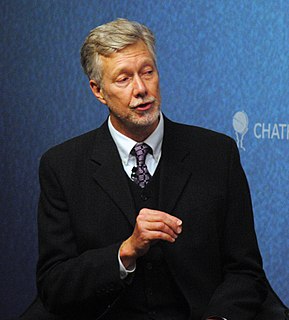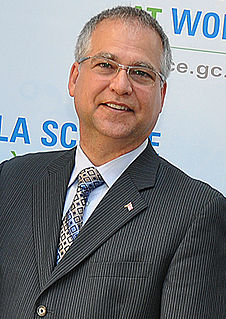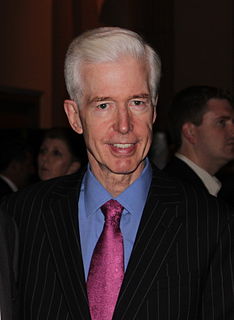A Quote by Jennifer Granholm
We aren't leveraging this great economic engine, the strongest economy in the world. And yet we have this totally weak response. We import $500 billion a year more in products than we export.
Related Quotes
Yes, twenty-seven million in slavery is a lot of people, but it is just .0043 percent of the world's population. Yes, $23 billion a year in slave-made products as services is a lot of money but it is exactly what Americans spent on Valentine's Day in 2005. If humans trafficking generates $32 billion in profits annually, that is still a tiny drop in the ocean of the world economy.
Our Government is fostering economic growth in Kitchener, Cambridge and all of the Waterloo Region by investing in our innovative businesses. Today's announcement is a great example of how we are helping high-potential companies bring great ideas to market faster. Helping our entrepreneurs and original thinkers export their products and services to the rest of the world creates jobs, growth and economic prosperity here at home.
In a world dependent on international trade and commerce, and staggering under a heavy load of international debt, no policy is more destructive than protectionism. It cuts off markets, eliminates trade, causes unemployment in the export industries all over the world, depresses the prices of export commodities, especially farm products of the United States. It is the crowning folly of government intervention.
We've got the emPHAsis on the wrong sylLAble when it comes to crime in this country. The FBI says burglary and robbery cost U.S. taxpayers $3.8 billion annually. Securities fraud alone costs four times that. And securities fraud is nothing to the cost of oil spills, price-fixing, and dangerous or defective products. Fraud by health-care corporations alone costs us between $100 billion and $400 billion a year. No three-strikes-and-you're-out for these guys. Remember the S&L scandal? $500 billion.
Higher education isn't just a personal investment. It's a public good that pays off in a more competitive workforce and better-informed and engaged citizens. Every year, we spend nearly $100 billion on corporate welfare, and more than $500 billion on defense spending. Surely ensuring the next generation can compete in the global economy is at least as important as subsidies for big business and military adventures around the globe. In fact, I think we can and must go further - not just making public higher education tuition-free, but reinventing education in America as we know it.
We must recognise that in a globalised world, we cannot remain insulated from external developments. India's trade performance in the current year has been robust, surpassing pre-crisis export levels and pre-crisis export growth trends. We have diversified our export baskets and our export destinations.

































